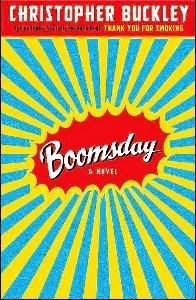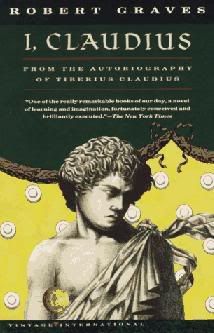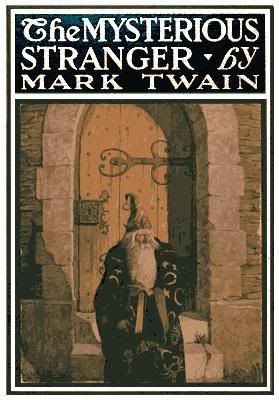|
Monday, March 31, 2008
...and I mean that in the nicest way
Title: You Suck
Subtitle: A Love Story
Author: Christopher Moore
Bookmark: an REI receipt for activewear that went unused while sitting on the couch and reading
Tommy wakes up dead and hungry, but food makes him puke. Coffee makes him puke. An aspirin to help with the puke-ache? More puke.
Tommy has been turned to a vampire by his girlfriend Jody. His buddies and former co-workers at the Safeway have turned from turkey-bowling to hunting him down with a blue hooker named... Blue. The ancient vampire who turned Jody (and Tommy had bronzed by a couple bikers) has escaped and is determined to get the little bastard who bronzed him.
The good news is that Tommy is discovering some really cool things vampires can do, like hearing shapes and having really unbelievably wild vampire sex, and he has a willing minion in Abby Normal (not her real name).
But you can get all that from the back cover of the book.
I seem to be on a run of funny books. This one, like the only other Moore I've read, takes place in the days (ok, days and nights) leading up to Christmas. All of it is sharp and clever, with an occasional interesting insight (chicks dig being vampires because it changes them from being potential victims to being top-of-the-food-chain predator queens), but the best parts by far were the sections written as entries in the journal of young Abby Normal, who despite her aspirations to Gothdom, still holds her Hello Kitty backpack dear and is elated that her mom gave her a care bear for Christmas. These entries invariably start with the sort of melodramatic woe-is-me pain-from-the-inky-black-shadowy-depths-of-despair crap that you'd expect from someone trying WAY too hard to be depressed, and quickly devolve into highly energetic squealings of her new friends and valley-girl teenspeak records of her exploits. I laughed harder in those sections than any other part of the book. Probably because I loved the overt mocking of that entire portion of subculture, and Abby's efforts to act glum and bummed despite professing her love for everyone who does something cool or saves her life (it happens more than you'd think).Labels: humor, spanking, special abilities, vampires
posted by reyn at
9:46 AM
2
comments

Wednesday, March 26, 2008
Thirsty Pachyderms
Title: Water for Elephants
Author: Sara Gruen
I read this quite a while ago (I am way behind on book reviews). It was very good and the cast of characters was excellent. Let's see, there's the arrogant abusive asinine circus master, the paranoid schizophrenic animal trainer, the hostile midget, and Rosie, the elephant who only knows... some language other than English (I don't remember which).
Then there's the overall plot of a veterinary school near-grad who drops out right before his final exams because his parents have been killed in a car accident. He runs away... to the circus! There he becomes the circus vet, taking care of all the animals, who are, of course, very mistreated. He falls in love with the wife of the paranoid schizophrenic (never a wise thing to do), and.. well, chaos ensues.
A very entertaining book. Well worth a read.Labels: circus, fiction
posted by Kate at
3:48 PM
1
comments

Cartoonists have crystal balls
Title: The Dilbert Future
Author: Scott Adams
Bookmark: grocery list written on the back of a boarding pass. yay, recycling!
Scott Adams, according to one of his websites, has been a "cow herder, sap gatherer, gardener, snow shoveler, dish washer, bus boy, hotel desk clerk, security guard, bank teller, computer programmer, budget manager, financial analyst, loan officer, product manager, project manager, lab technical support, cartoonist, author, public speaker, restaurateur," CEO of Scott Adams Foods, and is apparently a budding futurist. (This is one of those professions, like "philosophy major," that always struck me as a particularly large steaming pile) The great thing about reading a futurist book by Scott Adams is that he's a wickedly funny man. Damn near every page had me laughing--maybe a little too loudly--in the thin-walled warren I call an apartment. The great thing about reading a futurist book eleven years after it was published is an extra dose of humor--laughing at all the things he got very, very wrong, and laughing a little uneasily at the things he got very, very right. There's also a bit of irony when he bemoans that although the petroleum industry can produce a fuel that has everything our car needs, including detergents (for those of us too lazy to dismantle and scrub out the engine after every trip), the food industry still requires us to search the entire grocery for all the necessary components of a meal, with little to no guidance as to what that meal should include. He proposes that someone should invent something easily portable--"like a burrito"--that would supply all of our nutritional needs for a day. He then suggests that if nobody else will, he might give it a try. His attempt was on the shelves two years after this book was published. Coincidence? I think not.
Believe it or not, this wasn't his only attempt at self-promotion. There are numerous references to his Dilbert books and the Dilbert Zone website, and none-too-subtle suggestion that readers of Dilbert books are far more discerning, educated, and attractive than the average Induhvidual, but these are done with humor and levity, and do nothing to detract from the rest of the book. Adams takes a very cynical view of human nature, and of the business world, and for someone like me, that cynicism is like a warm, comforting blanket loudly emblazoned with the words "TOLD YOU SO, BITCHES." He posits that people are motivated by three forces: stupidity, selfishness, and horniness, and catering to those caprices can make you wildly successful in business. There's a great chapter (probably the most famous in the book) explaining why life will not be like Star Trek. (Friends would use medical technology to seal your butt closed, you'd use a transporter to steal everything you ever wanted and stay in a pornographic holodeck until you died of exhaustion and dehydration) Business trends in the past and present are used to illustrate how he is right, and lay the dismal groundwork for a future where one guy does all the work, and everyone except Marilyn vos Savant is in jail. (oh, and Switzerland is a race of ultra-intelligent superbeings, but that's already happened)
It was the last chapter that killed it for me.
A few years ago, I found a free online copy of a Scott Adams book described as "a thought experiment." I made it to maybe chapter three. Maybe. Part of this was my inability to read it anywhere but the family computer in the living room (I refused to download it onto my laptop until I had decided whether I liked it. In the living room, I could read the PDF online without ever really downloading it, and leave it there without shutting down), but mostly it was because I thought it was another of those previously mentioned large steaming piles. Some of the ideas were vaguely interesting (God self-destructed because he wanted to see what it was like; this was the Big Bang), but the rest of it was offensive to my basic scientific sensibilities (remember the Weird Al song "Everything You Know is Wrong"? Like that, but not as catchy.) and it centered on a deliveryman talking to The Man Who Knows Everything (really, everything) when he shows up at the wrong address. I'm ok with the conversation taking place between those two particular people, but the know-it-all spoke only in riddles, and the book itself was so damned hard to read that it quickly passed the point of being worth it to me.
The last chapter of The Dilbert Future is like a preamble to God's Debris. It has absolutely nothing to do with the rest of the book, and it almost feels like he just slipped it in there as a way to get this message to the masses because he was afraid nobody would bother to pick it up otherwise. Almost like the previously mentioned burrito, it feels as though it was stuck in this book as a marketing piece for his later project. I read all of The Dilbert Future, but this last chapter felt like the kind of crap my philosophy major cousin (currently vying for the championship belt in asininity) would come up with while performing trials of especially potent herbage. It makes me wonder what's in those burritos.
Don't get me wrong; the rest of the book is great. A lot of it is wrong, but that only adds to the humor, because a lot of it right, too, and almost all of it includes keen and very funny insights into the natures of humanity and business. Plus, his points are illustrated with dozens of Dilbert strips.Labels: futurism, humor, philosophy
posted by reyn at
9:35 AM
0
comments

Tuesday, March 25, 2008
A New Modest Proposal
Title: Boomsday
Author: Christopher Buckley

Terry said, “You’ve been reading Ann Rand again. I can tell.”
“Ayn Rand. And what’s wrong with that?”
“Nothing. Except everytime I see one of that nutty broad’s books open on your desk, you start acting like some fruitcake messiah.”
“Who was it who told me, a long time ago, ‘Anger is the best motivator’? Wasn’t it your generation that started the whole youth-movement thing? Come on, Terry. Forgotten what it’s like to be young and angry?”
Terry shrugged. “I’m middle-aged and angry. With good Scotch, I can deal with the anger.”
Jacked up late one night on caffeine pills and Ayn Rand, outraged young blogger Cassandra Devine cooks up a plan to save her generation from the looming Social Security debt threatening to crush them all: offer Baby Boomers government incentives to kill themselves (i.e., “voluntary transitioning”). Forget conventional morality and legality, Cassandra reasons; Baby Boomers have been the most selfish and self-centered of generations. It’s about time they gave something back to the rest of us.
Riding high on a wave of moral indignation, Cassandra proposed the plan on her Social Security policy blog, CASSANDRA (Concerned Americans for Social Security Amendment Now, Debt Reduction and Accountability). The result is a firestorm in the national media. The AARP vilifies her; the Sunday morning political shows court her; and the youth of the nation start rioting outside gated retirement communities. Most surprisingly, a playboy Senator (first name Randy) wants to make Cassandra’s proposal the platform for his presidential bid … and he might just succeed.
If you’re looking for a rollicking satire of political machinations inside the Beltway, Boomsday works. Those familiar with the bureaucratic chambers of our nation’s great capital will be particularly amused … if they are not deeply offended. Do you find the idea of a self-righteous televangelist tangling with “Russian Jezebels” (i.e., prostitutes) and their pimps amusing? How about a reality television show called Green Card, in which “illegal (but good-looking) Mexicans had to make it across the U.S. border, past the Border Patrol and minutemen and fifty miles of broiling desert, to the finish line”? If so, try Boomsday.
Incidentally, Christopher Buckley is the son of the late William F. Buckley, the witty and influential thinker behind the modern conservative movement. The son’s humor is more bombastic than the father’s, though his conservative leanings remain apparent. But Christopher seems more interested in skewering the Washington process than “liberals,” and he does so very effectively. So long as he keeps making me laugh, I can enthusiastically ignore his political lineage.
Check out this great Buckley interview with Markeplace about Boomsday.Labels: mass suicide, politics, satire, Washington DC
posted by Elizabeth at
6:47 PM
0
comments

Monday, March 24, 2008
Play Stupid, Stay Alive, Become Emperor
Title: I, Claudius
Author: Robert Graves

I, Tiberius Claudius Drusus Nero Germanicus This-that-and-the-other (for I shall not trouble you yet with all my titles) who was once, and not so long ago either, known to my friends and relatives and associates as “Claudius the Idiot,” or “That Claudius”, or “Claudius the Stammerer,” or “Clau-Clau-Claudius” or at best as “Poor Uncle Claudius,” am now about to write this strange history of my life; starting from my earliest childhood and continuing year by year until I reach the fateful point of change where, some eight years ago, at the age of fifty-one, I suddenly found myself caught in what I may call the “golden predicament” from which I have never since become disentangled.
Murder, intrigue, incest, ambition, prostitutes, witchcraft … in togas! And the stammering idiot whom everyone thought a fool becomes the Emperor of Rome at the end. What more can one want in a book?
Well, a family tree would have been nice. With everyone marrying cousins or their former in-laws, the genealogy of the lesser characters often became very confusing.
The last hundred pages or so, when the lunatic Caligula becomes Emperor, goes on a killing spree, and makes his horse a senator, were the most exciting. Nothing like a good old-fashioned bloodbath for increasing dramatic suspense!
And my favorite character was the primary villainess, Augustus’ wife, Livia. Sure, she was a cold-hearted schemer who poisoned countless people for her own benefit, but she also was the competent manager of the early Roman empire and adroitly held the reins of power for her rather naïve and innocent husband. That’s just the kind of evil mastermind I can really like. In the greater scheme of things, she did more good than bad.
Ok, the above is a bunch of amusing drivel. I’ll try to be serious. This really was a very good book, despite sometimes being dense and slow-going. Several weeks of Metro reading were required for me to finish it. It’s not perfectly accurate in a historical sense (Livia was not the evil witch Graves depicts her as), but it was nevertheless an entertaining "history" of the reigns of Augustus, Tiberius, and Caligula. Recommended if you have a lot of time to spare.
There’s apparently a very good BBC miniseries starring Derek Jacobi as Claudius. I’ll have to check it out.Labels: crazy fiction, fake autobiography, Rome
posted by Elizabeth at
8:40 PM
0
comments

I Like Small Feet, and I Cannot Lie...
Title: Snow Flower and the Secret Fan
Author: Lisa See

Snow Flower and the Secret Fan was a selection of my “real life” book club. I didn’t vote for it and didn’t expect much, but found myself enjoying it more than I’d anticipated. Learning about nu shu, the secret women’s writing kept hidden from men for generations, was fascinating. I’d like to visit a museum exhibit about it one day. And the descriptions of foot-binding were terrifying and excruciatingly gruesome. Ouch. I didn’t know it was as horrible as it actually was. These girls were disfigured. Check out the pictures.
The story was entertaining enough, and tells the history of the friendship between Lily (the narrator) and Snow Flower, two girls who were made laotongs, or old sames, in a ceremony that bonded them together for life. Honestly, however, I was expecting (and looking forward to) more melodrama. Maybe some adultery or murder would have been nice, but the most exciting thing Lee gave us was a very long insult. (Three-hundred pages, and all I got was a Letter of Vituperation!) Although to be honest, the book was better for the lack of melodrama.
Anyway, for further plot details, I refer you to ~e’s review. I agree with pretty much everything she said. Overall, I liked it – and greatly respected See’s research and level of detail – and am rather surprised I did.Labels: China, foot binding, friendship, historical fiction
posted by Elizabeth at
8:12 PM
1
comments

And you thought your boss was sadistic?
Title: Company
Author: Max Barry
SPOILERS SPOILERS SPOILERS SPOILERS

But at last it’s over. The final reorganization plan, which gives every employee something to be happy about, so long as they work in Senior Management, reduces the number of Zephyr departments by a whopping 70 percent. Many departments are out entirely, but most were rolled together, creating new departments with all of the responsibilities of two. Or three. Or, in one case, five. The plan is passed around the table, and as each Senior Management signature is added, hideous new creatures are formed from the stitching together of departmental organs. With the slash of a pen, Security is grafted onto Human Resources. Large, flapping sections of Legal are sewn into place. For reasons that have nothing to do with operating efficiency and everything to do with hardball bargaining between executives, the sole remaining Credit employee is stapled on. Lightning crashes outside the boardroom window as Senior Management finally, exhaustedly, attaches a departmental head. And there it is: a new department. Senior Management has given birth, right there in the board room. Its progeny lies on the table, a cruel abomination of nature, sucking its first foul breath. Its yellow eyes glint balefully. Its limbs curl and flop on the polished oak. It throws back its ill-fitting head and roars with life, or something similar.
Below, the scattered few employees still at work pause and look up. Their bowels tighten. They exchange frightened looks. No one puts it into words, but everyone feels it. Something evil has come into the world.
Max Barry’s Company is a clever premise, but not much more. Stephen Jones, an idealistic young business school grad, starts a job with Zephyr Holdings, but soon becomes horrified when he realizes that no one – neither employee nor manager nor cafeteria engineer – knows what the company actually does. The only thing everyone can agree on is that they are overwhelmingly miserable, and yet terrified to lose the security of their jobs. (Jones’ own department sells training packages to other Zephyr departments.)
Jones, determined to solve the mystery of Zephyr, soon stumbles upon a horrifying truth: Zephyr isn’t a company in the traditional sense at all. Rather, it’s an elaborate laboratory that its leaders use for management technique experiments, so that they can then market these management techniques to other, more real, companies. Essentially, all Zephyr employees are lab rats used to see how much misery can be inflicted upon a human being in the name of corporate efficiency before a mass revolt breaks out. Twisted.
Like I said, clever. But everything about this book, aside from its central conceit, is forgettable. Characters are as clichéd as the “cardboard cutout” cliché they’re most aptly described by. Barry’s writing, while sharp and glittering and amusing, lacks depth. And the madcap climax stretches suspension of belief far past the breaking point, before petering out to a whimpering conclusion that fails to make any impression. I was definitely left wanting more.
So a book worth reading, especially for those who suffer daily under the yoke of corporate bureaucracy. But Dilbert’s better.
That said, I really love the above passage describing the birth of a new department. Definitely the highlight of the entire book.Labels: corporations, humor, satire, work
posted by Elizabeth at
7:43 PM
2
comments

No, the Other Satan
Title: "The Mysterious Stranger"
Author: Mark Twain

Will a day come when the race will detect the funniness of these juvenilities and laugh at them – and by laughing at them destroy them? For your race, in its poverty, has unquestionably one really effective weapon – laughter. Power, money, persuasion, supplication, persecution – these can lift at a colossal humbug – push it a little – weaken it a little, century by century; but only laughter can blow it to rags and atoms at a blast. Against the assault of laughter nothing can stand. You are always fussing and fighting with other weapons. Do you ever use that one? No; you leave it lying rusting. As a race, do you ever use it at all? No; you lack sense and the courage.
Twain’s “The Mysterious Stranger” is more short story/novella than novel, but still interesting enough to merit a full review. One day in a sleepy Austrian village, three boys meet and become smitten with a charismatic youth named Satan. Satan’s intoxicating powers mesmerize the boys. He can read their minds and vanish into thin air with no more than a ripple. Most impressive, he can create miniature human figures from clay; figures which proceed to build their own civilization and culture.
Satan, clearly, is no ordinary fellow. He is, in fact, an angel. He shares a name with an uncle who is rather more famous than he. Although with the way events unfold, you might not see much difference between the two.
Satan has nothing but scorn for humanity’s limitations. He exists on a higher plane, and lacks what he calls the “Moral Sense.” Satan therefore can massacre his miniature clay people as easily as he creates them, and feel no regret whatsoever when he hears their screams. Do humans feel regret when they swat a fly? That’s how much Satan cares.
It isn’t long before Satan’s presence in and around the Austrian village begins to affect its inhabitants. He grants the boys’ request to help some worthy individuals they know, although the ultimate results are naturally not what the boys initially wished for. Believe me, you don’t want Satan helping you. The world is so miserable and wretched and unjust, he reasons, that people would be better off dead or hopelessly insane. The darkness of the story comes in when the boys eventually come to agree with their divine friend’s assessment.
More likely to be found in a collection of Twain’s short stories than in a stand-alone volume, “The Mysterious Stranger” is a treat for the bitter little misanthrope in all of us. Save it for a rainy day when all you want to do is sit and rage about the petty inconsequentiality of the human race. Dark, dark, dark.
posted by Elizabeth at
7:19 PM
0
comments

Wednesday, March 12, 2008
Jason Bourne's Great-great-great-grandfather
Title: The Man Called Noon
Author: Louis L'Amour
Bookmark: business card from my last job
"You over there! You with the blue coat! Don't I know you from somewhere?"
"You might." Ruble Noon spoke easily. "I've been there."
The man was just drunk enough not to understand. "You been where?" he demanded.
"There," Ruble Noon said gently.
...
"I don't think you know me," Ruble Noon said. He finished his coffee and got to his feet. "If you did you'd keep your mouth shut."
If romance novels are brain candy (something you enjoy, even though you know it's bad for you, and you spend a lot of your time while reading laughing at the book itself) for women, Louis L'Amour is brain candy for men. I enjoyed it; after a long break, I might even read more L'Amour should a book find its way to me--but I don't know that I'll bother seeking it out on my own.
A nameless man comes to in an alleyway with nothing in his head but a flesh wound and a vague sense that he's in danger. He quickly comes to the conclusion that he had fallen from the window above (or been shot from there), and that the best course of action in the immediate future is a quick and distant exit. Just before he jumps a train out of town, he hears the name of the man who shot him. That, and the letters he finds in the jacket he's wearing (it later turns out to be someone else's jacket) are his only leads to figuring out who he is, who is hunting him, and why.
Sound familiar?
I'll give L'Amour credit: he did it first (Noon was published in 1970), but Ludlum did it better. There are inconsistencies in the plot, and there are a couple dozen characters who float in and out then make surprise appearances later on, but get hardly more than a name for development, so I usually had no idea that I had seen a character before unless their name sounded vaguely familiar, a problem compounded by the frequent dropping of names of characters who weren't even in the book. Plus, I kept thinking of Ruble as "Roland," but I can't blame L'Amour for that one. (The first book in the Dark Tower series was not published until 1982, but King started it in 1970)
Does he figure out who he is? Is he in repeated gun battles, and nearly killed at least twice? Does he feel conflicted about his past life of killin'? Does he ultimately save the day? Of course he does. He's the good guy, and it's a western.Labels: finding oneself, western
posted by reyn at
9:51 AM
0
comments

|
|

